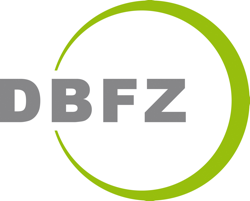DBFZ (German Biomass Research Centre) publishes the annual report 2015
Numerous research projects in the field of energy and integrated material use of biomass influenced the work at the DBFZ (German Biomass Research Centre) last year, 2015. In addition, the Leipzig Institute expanded its national and international research contacts and established itself in the scientific community through numerous new publications and events. These and many other aspects of 2015 can be read in the DBFZ Annual Report.
Despite the significantly more difficult conditions for bioenergy research, 2015 has been the strongest "External Funding Year" for the DBFZ. Thus numerous new R&D projects were launched in the past year and a total of 100 projects are ongoing. In addition to numerous collaborative and market projects, this included also large EU projects such as the project "SECTOR - Production of Solid Sustainable Energy Carriers from Biomass by Means of torrefaction", which was successfully completed at the end of 2015. The project goal for the more than 20 international partners from science and industry has been the further development and market introduction of torrefaction and torrefied biomass. Among the highlights was also the project "biomass potentials of residues and waste - Status Quo in Germany” which has been carried out together with the Regrowable Resources Agency (FNR) and the Thuringian Institute of Agriculture (TLL), and has successfully demonstrated that approximately one third of the technical residue potential in Germany (mainly wood residues, straw, manure and manure) is still unused at present.
In an interview, the deputy scientific managing director of the DBFZ, Prof. Dr. Daniela Thrän (DBFZ/UFZ /University of Leipzig) goes beyond the concept of "Smart Bioenergy" and explains the importance of further developing renewable energy for a successful energy transition: "The possibilities for the energy transition and for climate protection are now better than ever. Based on the way the debate is currently being framed, however, I am very concerned that the boom might now be followed by an exaggerated backward step. So greater political stability is vital to ensure that the knowledge and technical advances in biomass use for energy are preserved for the future", said Thrän.
In the international area, the DBFZ established itself as an important research center in the field of energy and integrated recycling of biomass and expanded the international visibility through a variety of new contacts and cooperation (in particular in the EU, South America, China and India). In order to improve the quality of Chinese biogas plants, a total of six plants in the province of Hebei are being backed with know-how and technology Made in Germany as part of a project partially financed by the World Bank. The high-calibre international group of scientific experts providing advice and support is headed by Prof. Dr. Michael Nelles, the Scientific Managing Director of the DBFZ. The extent to which the two countries have fostered cooperation in scientific research over recent years was also demonstrated during the visit to China of German Chancellor Dr. Angela Merkel in late October. On the occasion of the visit, Prof. Nelles represented the DBFZ and the University of Rostock in marking the 30th anniversary of the successful cooperation between the University of Hefei and German universities and research institutions in the field of biomass and waste recycling.
Download
The Annual Report 2015 can be obtained as PDF-Download or as a free printed edition in German and English.
Smart Bioenergy – innovations for a sustainable future
The DBFZ works as a central and independent thinker in the field of energy and material use of biomass on the question of how the limited available biomass resources can contribute to the existing and future energy system with sustainability and high efficiency. As part of the research the DBFZ identifies, develops, accompanies, evaluates and demonstrates the most promising fields of application for bioenergy and the especially positively outstanding examples together with partners from research, industry and public. With the scientific work of the DBFZ, the knowledge of the possibilities and limitations of energy and integrated material use of renewable raw materials in a biobased economy as a whole should be expanded and the outstanding position of the industrial location Germany in this sector permanently secured – www.dbfz.de/en.
